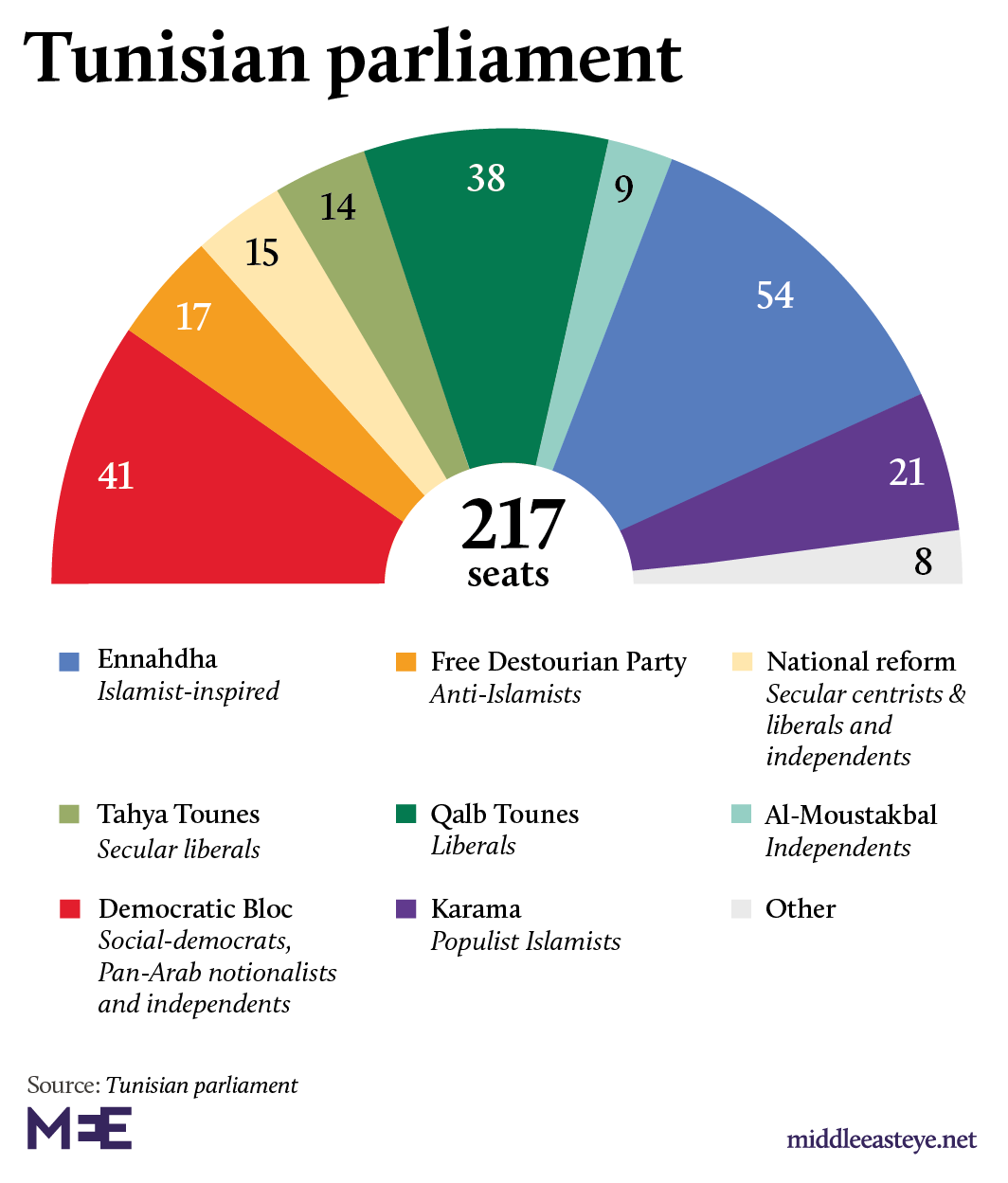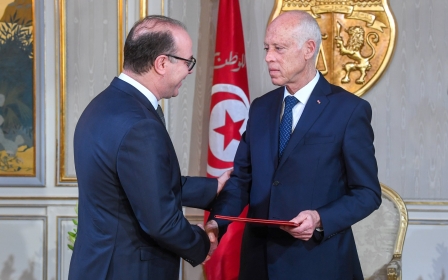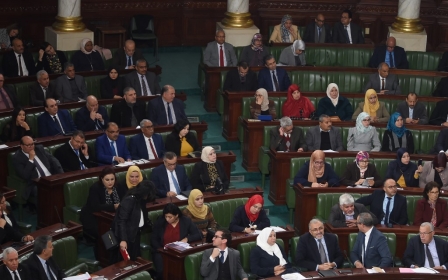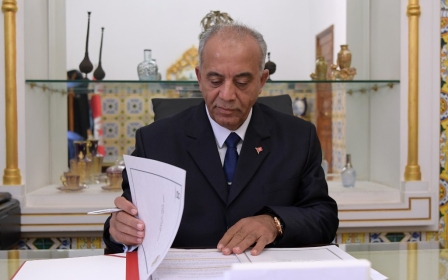Tunisia's PM-designate delays formation of government, raising prospect of new elections
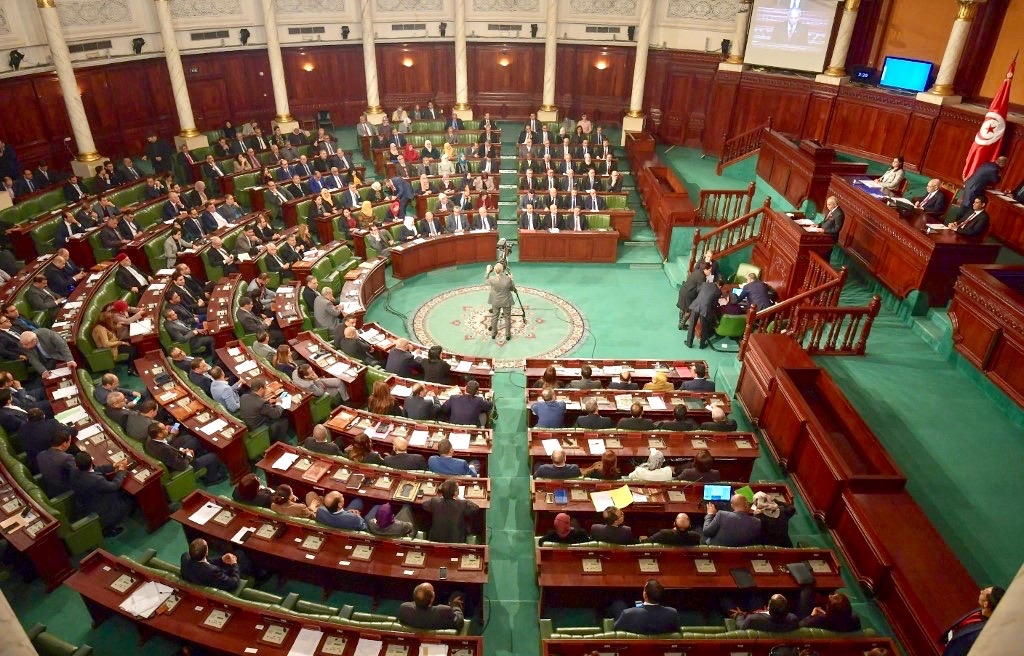
Tunisia's prime minister-designate has said he is delaying the formation of a new government after Ennahdha, the biggest in party in parliament, rejected the line-up.
Elyes Fakhfakh submitted a list of cabinet nominees to President Kais Saied on Saturday, with independents Nizar Yaich as finance minister, Nourredine Erray as foreign minister and Imed Hazgui as defence minister.
But before the line-up could officially be announced, the Islamist Ennahdha party said it was pulling out of the government.
The moderate "Muslim democrats", which hold 53 seats in parliament, said they would only join a unity government that brings together parties from across the political spectrum.
"Ennahdha has decided not to take part in the government or in a vote of confidence," senior Ennahdha member Abdelkarim Harouni told reporters.
Qalb Tounes, the second-biggest party with 38 seats, also said it would not back the government after the prime minister-designate excluded it from the coalition.
Fakhfakh had left Qalb Tounes and the Free Destourian Party, led by anti-Islamist lawyer Abir Moussi, out of his planned government, after vowing to only draw support from parties he considered were alignment with the goals of the 2011 revolution.
"I do not consider them (Qalb Tounes and the Free Destourian Party) to be on the path of the revolution or to meet the people’s expectations regarding the road ahead," Fakhfakh said in his first news conference as prime minister-designate.
Fakhfakh told reporters on Saturday that Ennahdha's decision would put the country in a "difficult situation," adding he would continue with coalition negotiations.
The prime minister-designate now has less than two weeks for his proposed government to be approved by parliament or there will be new elections.
But with the largest parties either opposed to his coalition or unenthusiastic about its composition, Fakhfakh may struggle to gain the strong parliamentary majority needed for any significant political programme.
In addition to its political crisis, Tunisia faces a series of long-term economic challenges which threaten to undermine public trust in the young democracy.
Tunisia is struggling to meet the expectations of its population, while an assistance package started by the International Monetary Fund in 2016 ends in April.
Since the 2011 revolution, unemployment has been high and growth low, while the government has sunk further into debt with a series of big-budget deficits that foreign lenders demand it bring under control.
Middle East Eye propose une couverture et une analyse indépendantes et incomparables du Moyen-Orient, de l’Afrique du Nord et d’autres régions du monde. Pour en savoir plus sur la reprise de ce contenu et les frais qui s’appliquent, veuillez remplir ce formulaire [en anglais]. Pour en savoir plus sur MEE, cliquez ici [en anglais].



